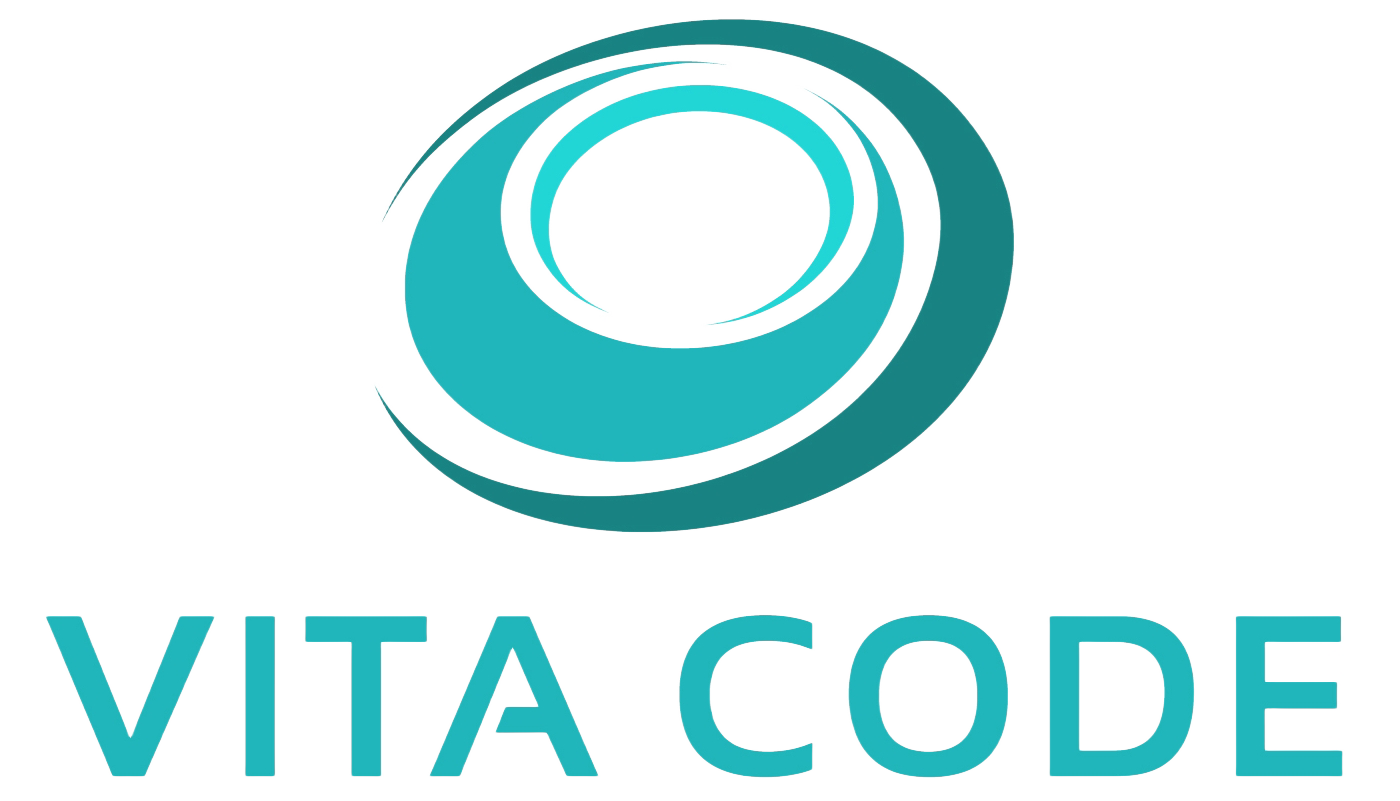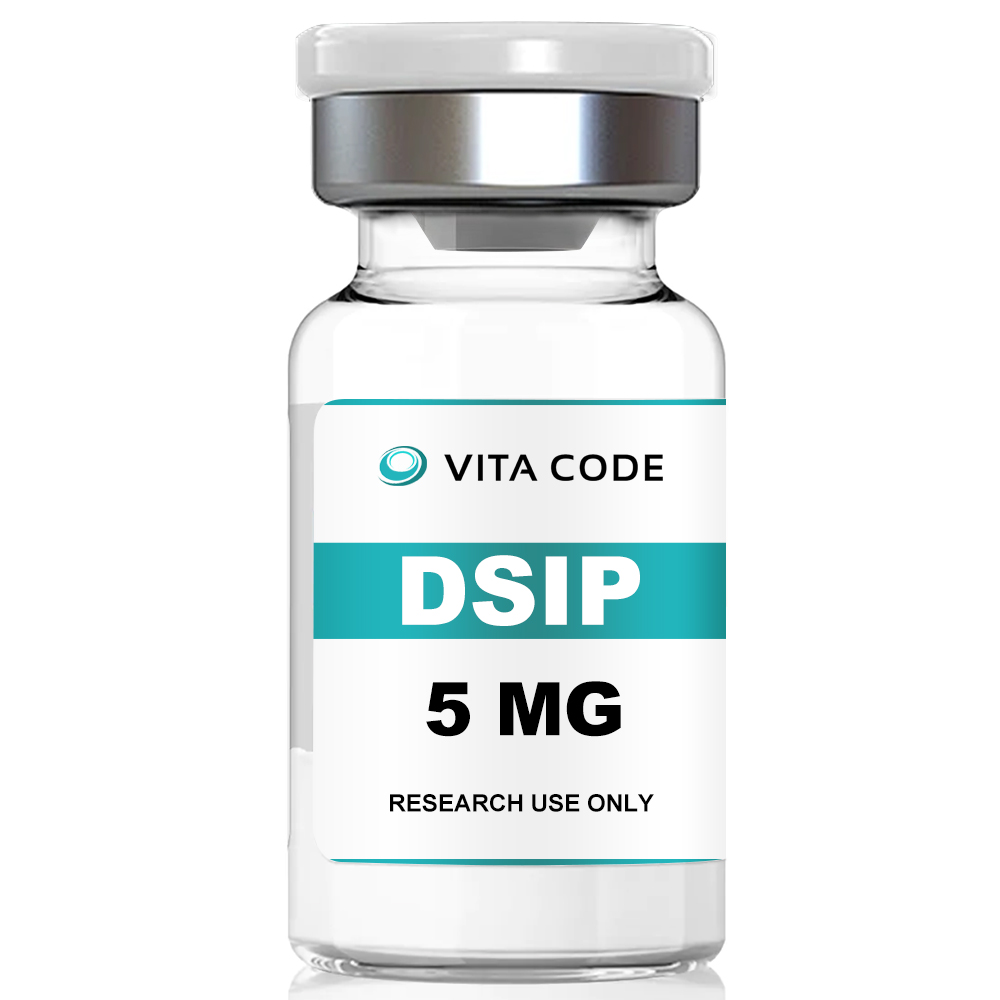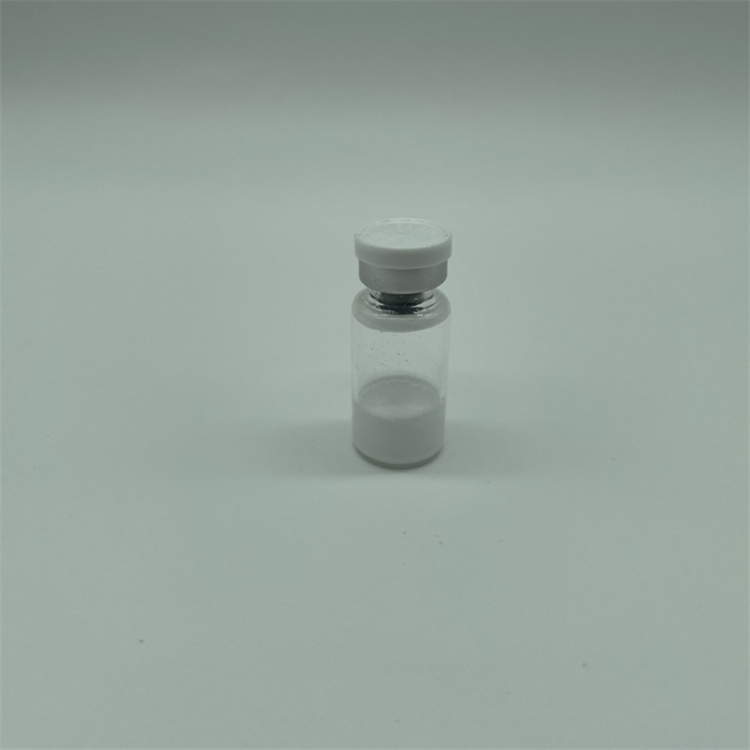DSIP 5MG
DSIP (Delta sleep inducing peptide) is a neuropeptide that affects a number of endocrine and physiological processes within the central nervous system. DSIP is of primary interest for its abilities to reduce oxidative stress, normalize myocardial contractility. It is also being studied as a potential target in the treatment of major depressive disorder.
Additional information
| Name | DSIP |
|---|---|
| Sequence | Trp-Ala-Gly-Gly-Asp-Ala-Ser-Gly-Glu |
| CAS No. | 62568-57-4 |
| Purity | 99% |
| Appearance | Lyophilized Powder |
| Molecular Formula | C35H48N10O15 |
| Molecular Weight | 848.82 g/mol |
| Storage | Store in an air-tight container away from light at 2-8°C. For best preservation, store below -10°C. |
Product Details:
DSIP and Sleep Research
Delta sleep-inducing peptide (DSIP) is a nonapeptide that was discovered in 1977 for its ability to stimulate slow or delta wave sleep. DSIP has been studied for its potential therapeutic effects on sleep and pain. Here are some key findings:
A study was conducted to examine the effects of DSIP on sleep in 16 patients with chronic insomnia. The findings revealed that DSIP led to improved sleep efficiency and reduced sleep latency compared to the placebo.
In a clinical pilot study, it was found that DSIP showed therapeutic benefits in individuals experiencing chronic and severe pain episodes. The study proposed that DSIP may have a regulatory or “programming” effect on the body’s natural opioid-peptidergic systems, both internally and externally within the brain.
Only one study has investigated the effects of DSIP on sleep EEG in normal men and found only minor effects.
DSIP possesses various psychophysiological properties in addition to its ability to induce natural sleep.
Normal sleep patterns were restored in middle-aged and elderly individuals with chronic insomnia by the end of DSIP administration. These improvements were sustained during the follow-up period.
DSIP and Pain Relief
Research has indicated that DSIP has the potential to effectively reduce pain in patients experiencing chronic and severe pain episodes. In a clinical pilot study, DSIP was given intravenously for five consecutive days, followed by five injections every 48-72 hours. This treatment resulted in a significant reduction in pain levels for six out of seven patients suffering from migraine episodes, vasomotor headaches, chronic tinnitus, and psychogenic pain attacks. Furthermore, DSIP demonstrated pain-reducing effects in headache and other pain syndromes with peptidergic mechanisms.
DSIP and Addiction and Withdrawal
Delta sleep-inducing peptide (DSIP) is a neuropeptide that has been extensively researched for its potential therapeutic applications in treating withdrawal syndromes caused by alcohol and opiates. The basis for this therapeutic use of DSIP comes from various animal studies conducted by Tissot. These studies demonstrated that when DSIP was directly injected into the bulbo-mesencephalo-thalamic recruiting system, it induced slow-wave sleep accompanied by numerous spindles. Importantly, the sleep-inducing effect of DSIP was reversed by Naloxone, suggesting that DSIP may have an agonistic activity on opiate receptors. Therefore, DSIP holds promise as a potential treatment for withdrawal syndromes.
DSIP was given intravenously to 107 inpatients who showed symptoms of alcohol or opiate withdrawal. The doctors and nurses evaluated the effects of the treatment. About 13% of patients in the first group and 22% in the second group were unable to complete the evaluation. In 97% of opiate addicts and 87% of alcoholics, the clinical symptoms improved or disappeared after receiving DSIP. However, anxiety took longer to decrease. Overall, opiate addicts required more DSIP injections and had a longer course of clinical symptoms compared to alcoholics. Most patients tolerated the DSIP treatment well, although a few reported experiencing headaches.
DSIP and Cancer
A mouse study found that DSIP has a protective effect against aging and cancer in mice. When mice were treated with a preparation called Deltaran, which contains DSIP, the overall occurrence of tumors decreased significantly (by 2.6 times), particularly in the form of mammary carcinomas and leukemias, compared to the control group.
Source from NCBI








